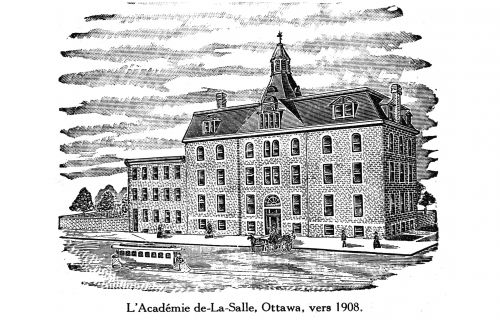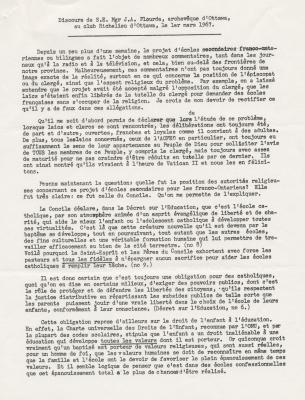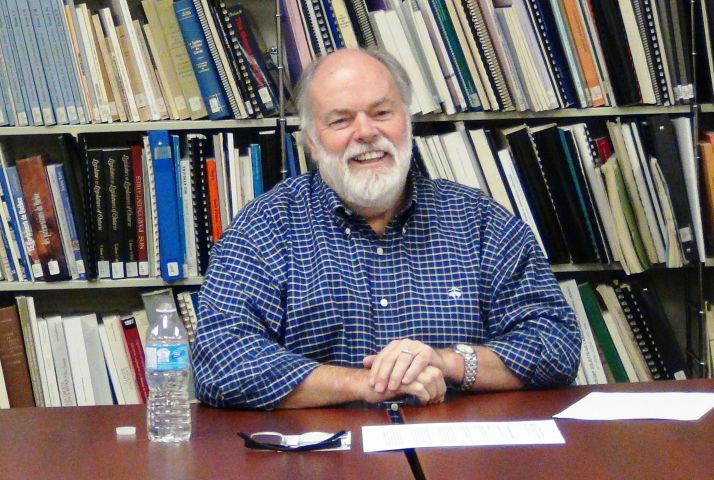In Ottawa, and elsewhere in Ontario, teaching in French at the secondary level depends almost exclusively on the Church until the mid-1960s. The Catholic Church is the only organization with the financial and human resources necessary to maintain French secondary schools, which do not receive public funding because they are faith-based.
The classical program, offered to boys, is intended to prepare them for liberal professions or the priesthood. Girls have access to academic or commercial studies, for those who plan to enter the labour market before marrying. The Brothers of the Christian Schools take on a new challenge in 1879 when they establish a private school of science and commerce for the middle and working classes. This school, which becomes the Académie De-La-Salle in 1898, is still the pride of Ottawa’s Francophones today. The École secondaire publique De La Salle is now known for its centre of artistic excellence, unique in French Ontario.
Starting in the 1930s, the provincial government authorizes the introduction of special French courses in public high schools. Young Francophones can now take a part of their secondary education in French at a lower cost than in private institutions. Aware of the threat facing them, private facilities engage in fierce competition with bilingual public high schools, claiming their programs are superior and their academic environment more French.
The situation becomes untenable at the turn of the 1960s. Without financial support from the government, private colleges cannot sustain competition with the province’s thriving bilingual high schools. Many private institutions are forced to close their doors. To preserve their network, which is on the verge of collapse, they choose to join English-language public school boards in 1968, forming the first nucleus of French-language public secondary schools.
The Académie De-La-Salle, Ottawa, [ca. 1908]. Copy of a print: F. M. Cyrille, é.c., Vers les cîmes, Montreal, 1936, p. 55.
Source: University of Ottawa, CRCCF, Collection générale du Centre de recherche en civilisation canadienne-française (C38), Ph123ph1-I-102.









